RVNs Joanne Andrews and Emma Poolton are unpacking their bags after spending a month volunteering at the only veterinary clinic in the Cook Islands.
Here, the friends – who met when working at the RSPCA Birmingham Animal Hospital – recount their adventures, which featured eye-opening cases, gentlemanly dogs and a lot of local lingo…
![]() Why did you want to volunteer in the Cook Islands and how did you arrange it?
Why did you want to volunteer in the Cook Islands and how did you arrange it?
![]() Jo: I wanted to experience charity work in another country. I enjoy working for a charity and love to travel, so thought this would be a good opportunity to combine the two. Emma’s friend had previously volunteered in the Cook Islands and her photos looked amazing; that inspired us to do something similar.
Jo: I wanted to experience charity work in another country. I enjoy working for a charity and love to travel, so thought this would be a good opportunity to combine the two. Emma’s friend had previously volunteered in the Cook Islands and her photos looked amazing; that inspired us to do something similar.
We liaised via email with veterinary charity Te Are Manu, which was extremely helpful – it obtained our visas, arranged collection from the airport and provided accommodation. That left us to just arrange our flights.
Emma: We managed to take some annual leave for the trip, but mostly unpaid leave for me as I didn’t want to find myself with no holiday for the rest of the year.
![]() Were you apprehensive or just excited before you flew out?
Were you apprehensive or just excited before you flew out?
![]() Jo: We had been planning and saving for a year, so I was really excited and looking forward to the trip. I was a little apprehensive about the journey as it was such a long way from home, but it was an adventure well worthwhile.
Jo: We had been planning and saving for a year, so I was really excited and looking forward to the trip. I was a little apprehensive about the journey as it was such a long way from home, but it was an adventure well worthwhile.
Emma: We were apprehensive because it’s such a long way from home, and being a remote island, no internet was available and WiFi was variable. It was emotional to say goodbye to loved ones and not see them for a month, but on arrival, the locals were so friendly and the general atmosphere so relaxed, it felt like a warm home away from home very quickly.
![]() What did you hope to achieve during your trip?
What did you hope to achieve during your trip?
![]() Emma: “We wanted to meet new people and animals, and experience a different culture – and we certainly did. Nearly all the dogs are fed at home, then roam the streets and beaches all day. What surprised me most was how well they behaved and interacted with each other. They hang around in groups and are friendly with people, hoping for a few scraps of food. Most of them have some sort of limp caused by trauma from road traffic collisions (RTCs).
Emma: “We wanted to meet new people and animals, and experience a different culture – and we certainly did. Nearly all the dogs are fed at home, then roam the streets and beaches all day. What surprised me most was how well they behaved and interacted with each other. They hang around in groups and are friendly with people, hoping for a few scraps of food. Most of them have some sort of limp caused by trauma from road traffic collisions (RTCs).
Jo: I felt a sense of achievement because veterinary care is so limited on the island compared to the UK. Every patient we came in contact with felt the benefit of our care, so it felt worthwhile – even if it was just supplying flea and worming treatment.
![]() What was the highlight of the trip?
What was the highlight of the trip?
![]() Jo: There were so many. It was a novelty and treat to sit on a beautiful beach and have breakfast and a cup of tea before work. Meeting Sonny (the clinic dog that is also your housemate during the stay) was a privilege, too. He joined in with swimming and beach sessions after clinic.
Jo: There were so many. It was a novelty and treat to sit on a beautiful beach and have breakfast and a cup of tea before work. Meeting Sonny (the clinic dog that is also your housemate during the stay) was a privilege, too. He joined in with swimming and beach sessions after clinic.
The island we stayed on was called Rarotonga and we went on a day trip to Aitutaki – one of the neighbouring islands – which was paradise; I’ve never seen such blue sky or clear water. We saw two whales playing together while we were lazing on the beach one afternoon. I hadn’t seen whales before – it was amazing.
Emma: The highlight was definitely making friends – people and animals alike. Permanent staff Debbie and Pip are wonderful and so devoted to the clinic. The locals are so friendly, too. They often invited us to their businesses or on excursions at discounted rates as thanks for treating their animals.
Plus, Sonny is a legend and true gent, walking us to and from work every day. Our foster dog Desi was a joy. It was difficult to say goodbye to her as we fostered her for three weeks, taking her home to feed her up as she was so underweight. Although the free roaming has its risks, the life the dogs have is a very happy and fun one.
![]() What did you learn?
What did you learn?
![]() Jo: From a professional point of view, a canine patient had symptoms of fish poisoning, which I had never seen before.
Jo: From a professional point of view, a canine patient had symptoms of fish poisoning, which I had never seen before.
The toxicity apparently occurs when ingesting fish that have been feeding off the reef, and the patient required intensive nursing and rehabilitation. We went on a few tours, and learned about local culture and history (and the odd bit of local lingo). I also learned to paddleboard. We had plenty of time to work and play.
Emma: It was great sharing my experiences with Jo – we are opposites in character, so are often appreciative of one another and our varying viewpoints. We looked out for and supported each other in and out of work – particularly at work, where talking nursing care with Jo really helped us plan how to get it done easily.
Saying that, I wouldn’t want to put anyone off travelling alone – Debbie and Pip will definitely look after you, helping plan excursions and activities you want to do and the time to do them. The staff who volunteered while we were there arrived alone and we fitted like a family.
![]() How did your VN skills come into play?
How did your VN skills come into play?
![]() Jo: Because Te Are Manu is the only veterinary clinic in the area, and a non-profit organisation that relies solely on donations and volunteers, the VN role was vital in caring for the Cook Islands’ injured animals. Without volunteers, no veterinary care would be available, so all such volunteers are greatly appreciated by the locals.
Jo: Because Te Are Manu is the only veterinary clinic in the area, and a non-profit organisation that relies solely on donations and volunteers, the VN role was vital in caring for the Cook Islands’ injured animals. Without volunteers, no veterinary care would be available, so all such volunteers are greatly appreciated by the locals.
Lots of varied cases presented, although quite a few dogs were involved in RTCs that required wound management plans. One required a leg amputation. An appointment system existed by which people could bring their sick animals in for treatment, health checks or flea and worming. We also made multiple house visits to people who couldn’t attend the clinic. Anaesthesia and radiography were carried out daily.
![]() Do you have any advice for anyone planning to volunteer in the Cook Islands?
Do you have any advice for anyone planning to volunteer in the Cook Islands?
![]() Jo: Get ready for a brilliant time. It’s something I will never forget. On a practical note, the roads are easy to drive around and getting a driving licence is easy. Get your data on arrival at the airport – it’s probably easiest.
Jo: Get ready for a brilliant time. It’s something I will never forget. On a practical note, the roads are easy to drive around and getting a driving licence is easy. Get your data on arrival at the airport – it’s probably easiest.
Emma: Have a wonderful time. It is paradise.
- For more information about volunteering at Te Are Manu, email tearemanu@gmail.com
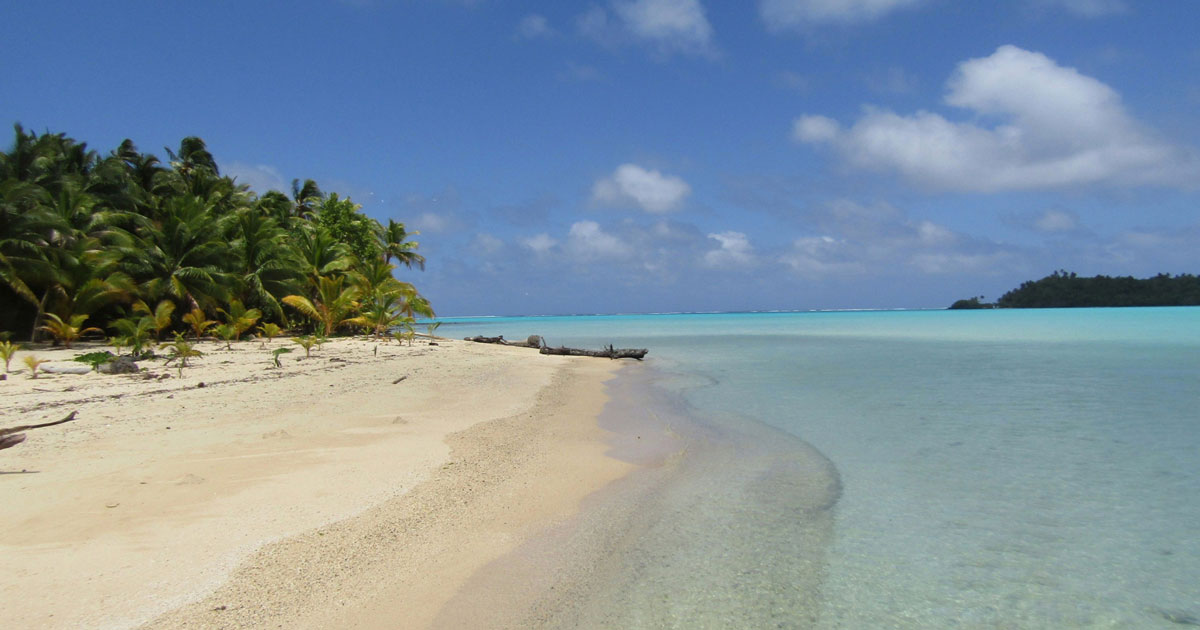
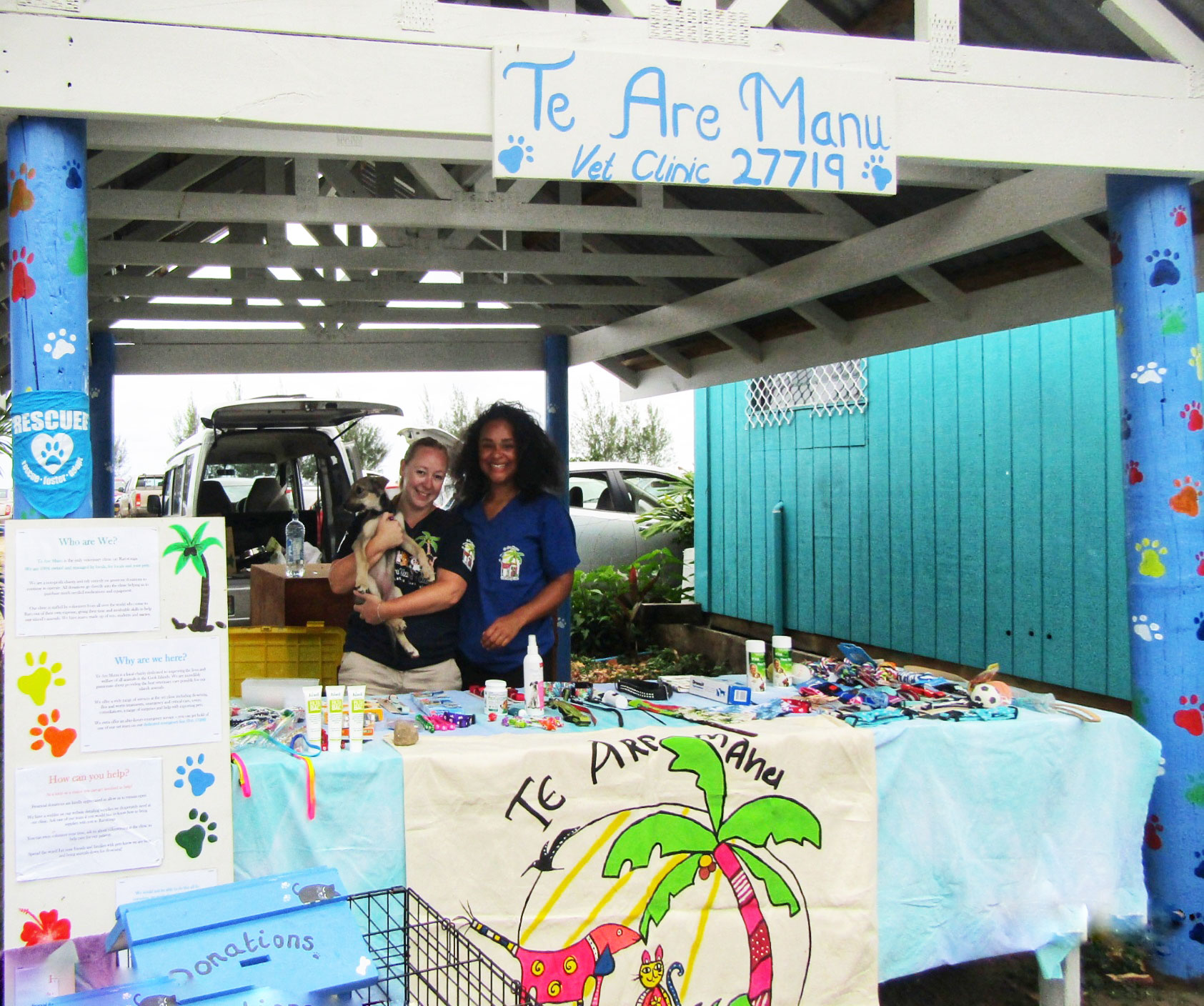
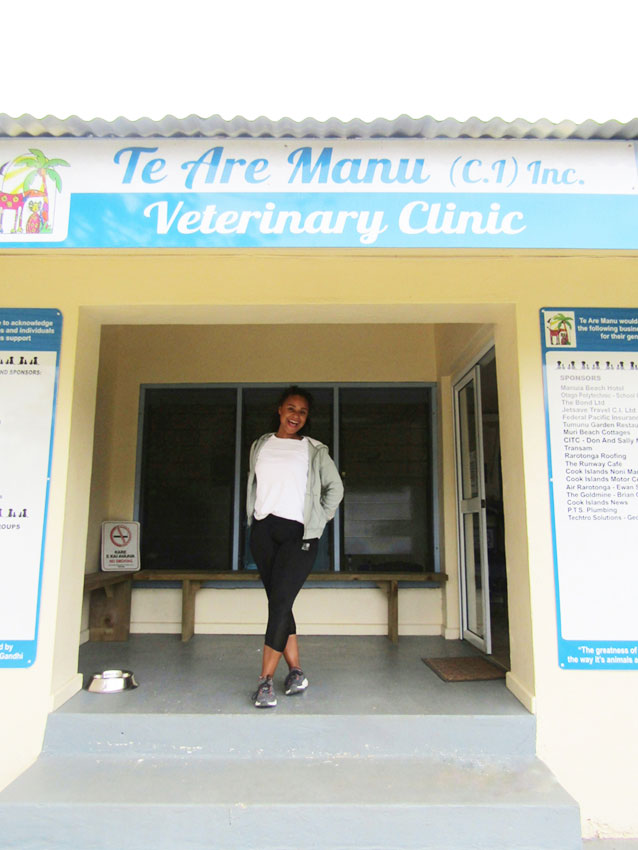
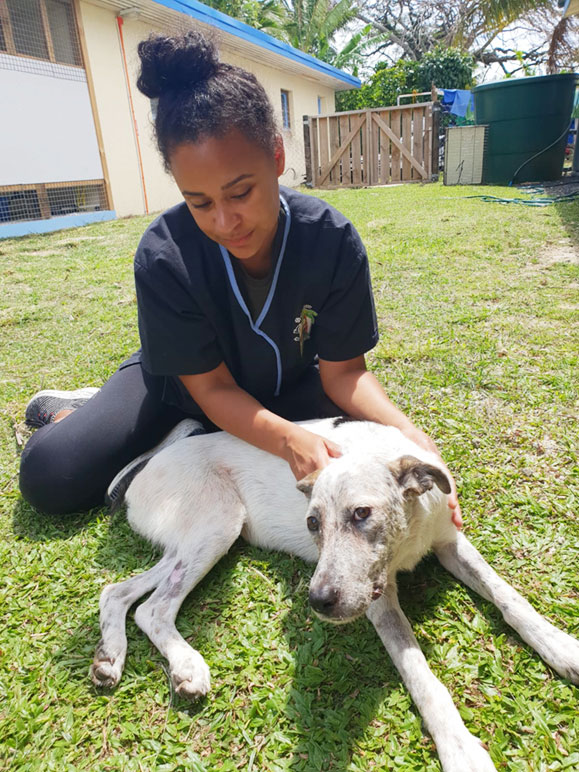
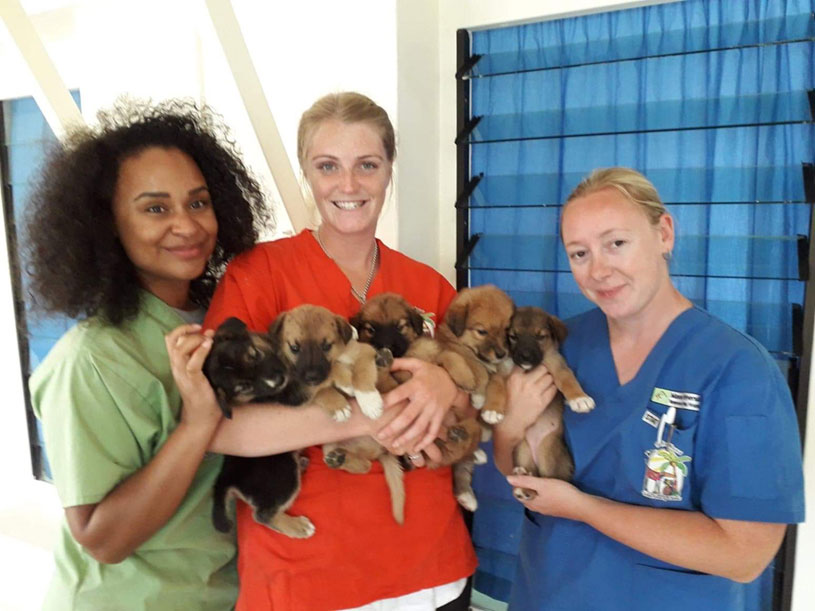
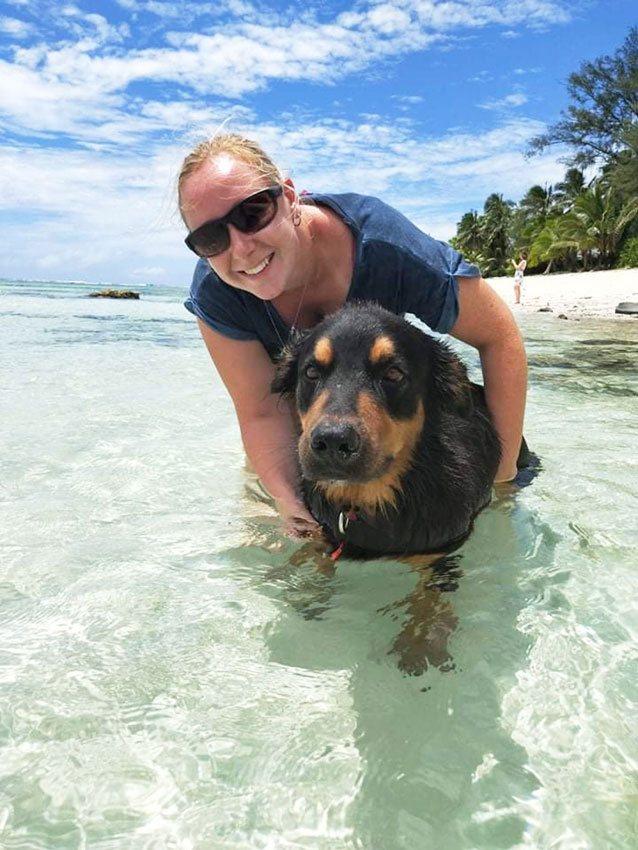
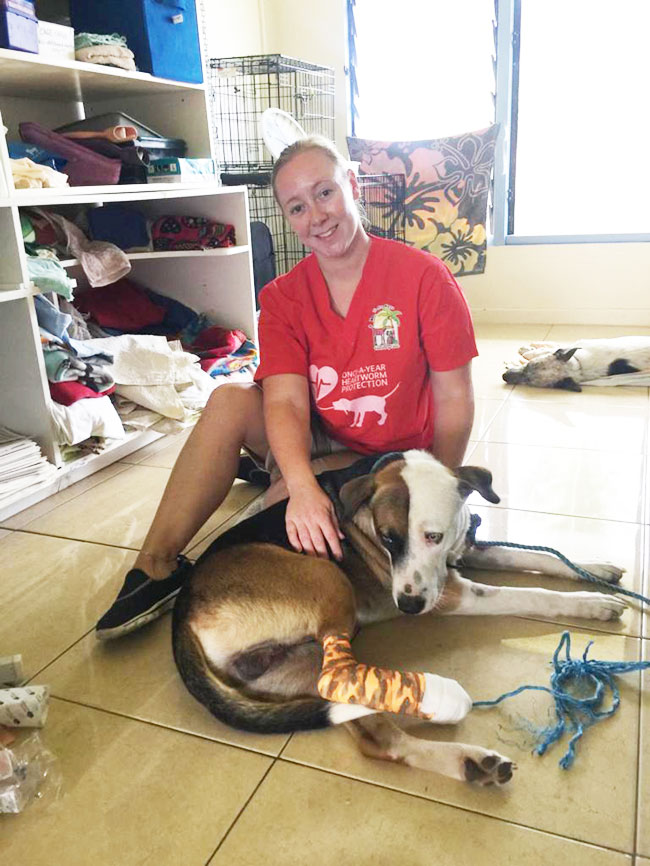
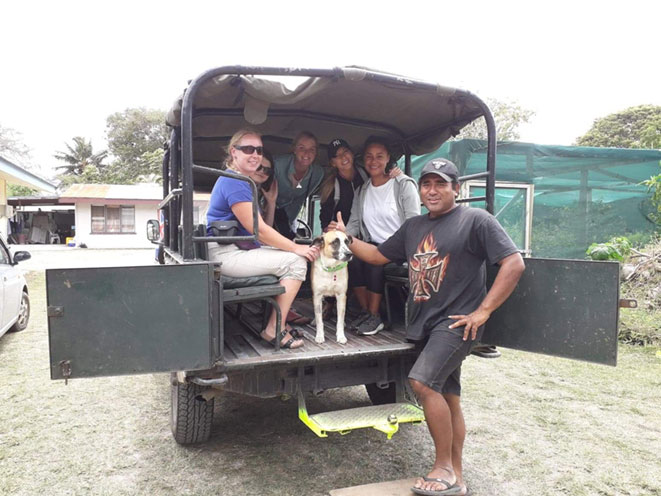
Leave a Reply